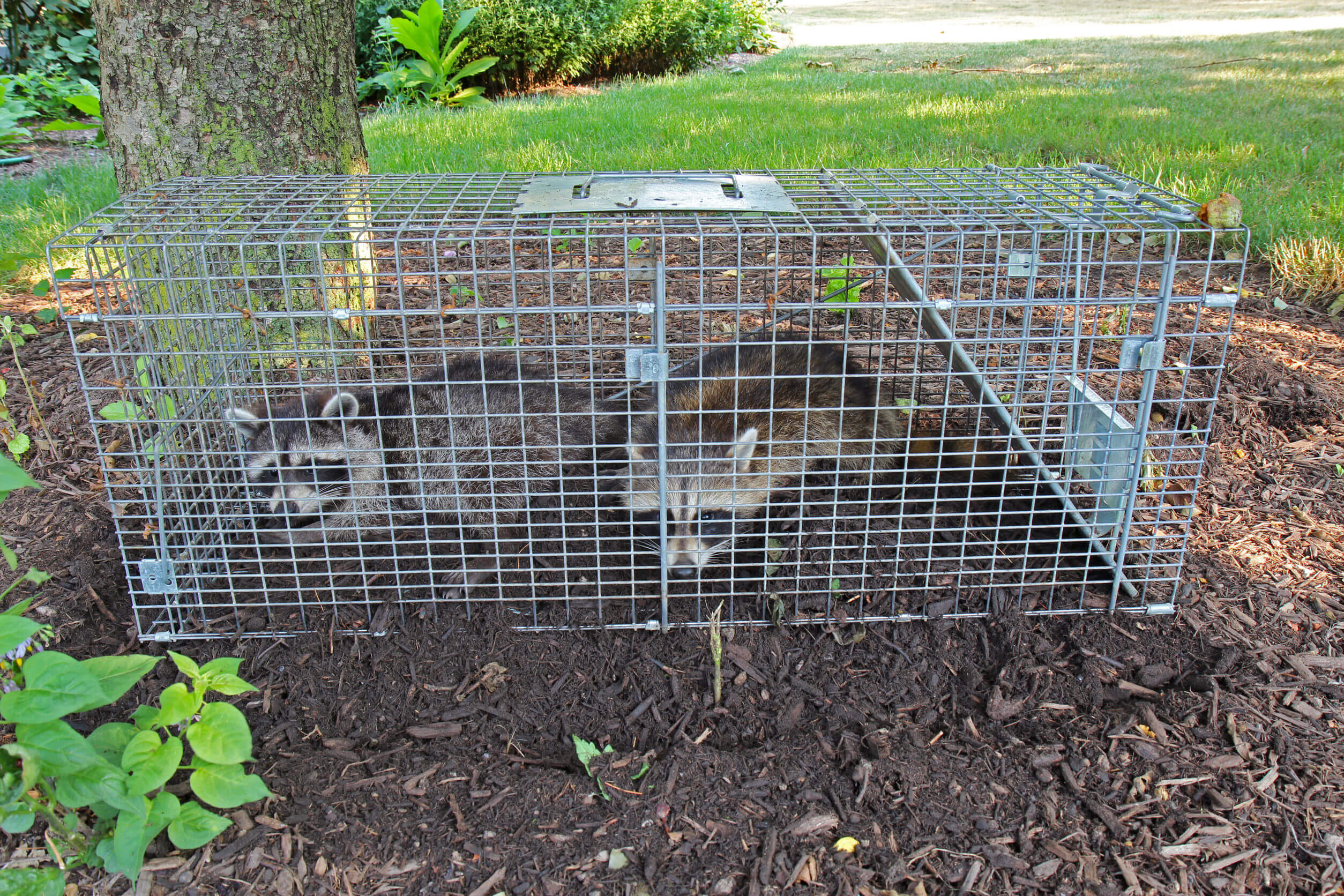Are Raccoons Dangerous?
Raccoons are well adapted to live in both urban and rural areas, and they can be easily recognized by their bushy tails and distinctive mask-like markings on their faces. They are omnivorous, and they will feel at home almost anywhere, from hiding under porches, to living within abandoned buildings and barns. Raccoons are considered pests because they can cause property damage and because they are a health hazard for humans, pets, and livestock.
Appearance and signs of infestation
Raccoons can weigh anywhere between 11 and 48 pounds and they can grow up to 37 inches in length. Male raccoons are generally larger than females and the typical coloration ranges from grey to reddish-brown.
When raccoons infest a home, they will tend to make a lot of noise. They also set up latrines near their dens, which is where they deposit their urine and excrement. As such, the homeowner will probably start noticing foul odors shortly after a raccoon infestation. Finally, if you see tracks and scratch marks around your yard, it may also be a good indicator that you have an infestation.
Raccoon droppings
Raccoons often leave their faeces in large communal piles. These are called latrines. Homeowners will often find these latrines on their roofs, decks, attics, haylofts, woodpiles, and around both flat, and raised areas. If you want to determine whether the piles of faeces come from raccoons, check for dark, tubular droppings about the diameter of a nickel.
In addition to their strong, unpleasant smell, these droppings can pose health risks. Raccoons are natural hosts for parasitic roundworms and may pass millions of parasite eggs in their waste every day.
Removing raccoon droppings
For those who already have latrines on their property, prompt and thorough cleanup of the faeces is necessary to avoid health hazards. However, the process itself can be difficult and dangerous. Stirring up the dust of dried raccoon scat can release eggs and waste particles into the air. On top of that, since the parasites hosted by the raccoons can survive in the soil for years after latrines are removed, the floor or ground underneath must be sanitized using extremely high heat.
Raccoon Removal
Raccoons can cause a variety of issues for homeowners as a result of their nesting and feeding habits. They can enter homes through chimneys, through gaps in the roof, and through damaged screens, making exterior holes bigger and weakening the structural integrity of buildings.
Female raccoons actually prefer dark, quiet environments to rear their young and settle in crawlspaces and attics. They also enter dumpsters and knock over garbage cans in search of easy meals. Finally, raccoons can carry various diseases dangerous to humans, such as rabies and the parasitic raccoon roundworm.
The safest and most efficient way to deal with raccoon problems is to leave them to the trained wildlife experts. If you have a raccoon infestation on your property, contact us right away and we will get rid of it.

